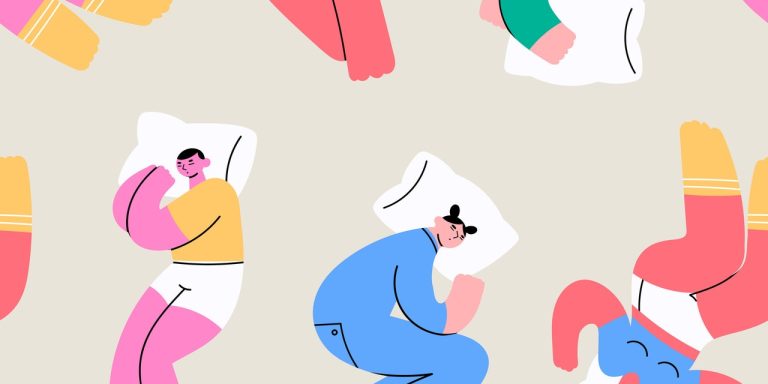
Popping the occasional magnesium complement for higher sleep could have as soon as been a behavior reserved for area of interest wellness circles. However we’re now residing within the period of Huge Sleep, the place the promise of a hand-to-mouth insomnia repair looms large, and individuals are sucking down the “sleepy lady mocktail”—a concoction of tart cherry juice, magnesium powder, and glowing water that went TikTok-viral in 2023—with each hope that it’ll reside as much as its title. And you’ll’t blame ‘em: It solely is sensible {that a} complement with a lot road cred for good shuteye ought to have at the least some science behind it…proper?
Broadly talking, magnesium is a mineral that helps facilitate a bunch of chemical reactions in your physique, permitting for on a regular basis muscle actions and nerve perform, regulating your blood strain and sugar degree, and contributing to the event of protein, bone, and DNA. It’s additionally one thing your physique can’t make itself, so it’s important to get your provide from exterior sources—ideally, from complete meals like leafy greens, nuts, legumes, and fish. The day by day really useful quantities are 310 to 320 milligrams for girls and 400 to 420 milligrams for males, however it can be difficult to hit that quantity with weight-reduction plan alone: An estimated 48% of People fall wanting consuming that a lot magnesium from meals. It doesn’t assist that business food-processing practices have probably stripped some magnesium out of produce that will naturally include extra of it, Sasikanth Gorantla, MD, a neurologist and sleep medication specialist on the College of California Davis, tells SELF.
There’s a little bit of analysis to counsel that being chronically poor in magnesium can, in reality, increase your threat of poor sleep or a sleep problem (like insomnia or extreme daytime sleepiness), maybe by interfering together with your circadian rhythm (a.ok.a. your 24-hour physique clock). As a result of the mineral performs a task in power manufacturing, being tremendous low on the stuff may depart you fatigued all through the day—and although it sounds counterintuitive, fixed daytime tiredness may result in insomnia by weakening the hyperlink in your mind between nighttime and sleepiness, Brian Chen, MD, a sleep medication doctor on the Cleveland Clinic, tells SELF.
However even for those who’re not recurrently hitting your really useful quantity of magnesium with meals, it’s unlikely in your physique to change into so poor that you simply expertise signs, Dennis Auckley, MD, a professor of drugs at Case Western Reserve College and director of the Middle for Sleep Medication at MetroHealth Medical Middle, in Cleveland, tells SELF. That’s as a result of most individuals’s kidneys will account for a decrease consumption by holding onto extra magnesium when it’s in brief provide. (The primary exceptions are people with GI circumstances that have an effect on their absorption of magnesium, and folks with kind 2 diabetes or alcohol dependence, each of which might immediate the kidneys to excrete an excessive amount of of it.)
So, for those who’re not experiencing signs of magnesium deficiency, can ramping up your consumption have any impact in your capacity to go to sleep simply or snooze soundly? Right here, specialists break down the potential connection between magnesium and sleep, and what you want to know for those who’re contemplating including this complement to your pre-bed ritual.
Magnesium has a pair results on the physique that will not directly influence your sleep.
All of the hype round guzzling magnesium for sleep probably comes from a number of issues we find out about how the mineral capabilities within the mind. For starters, magnesium basically tells your NMDA receptors—that are concerned in anxiousness and excitability—to sit back out, which can assist calm you down. And it additionally has the alternative impact on GABA receptors, which promote sleepiness, by binding to them and boosting their exercise, Dr. Auckley says. That is just like how sleeping drugs like benzodiazepines (e.g. Valium and Xanax) and “Z” medication (e.g. Ambien, Sonata, and Lunesta) work, he explains. Collectively, these properties of magnesium could produce an anti-anxiety impact and promote rest, making sleep extra more likely to occur.